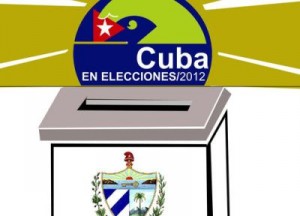 The newly nominated candidates to the Cuban Parliament and the provincial assemblies of People’s Power will hold meetings with voters this week, prior to the February general elections, authorities said today.
The newly nominated candidates to the Cuban Parliament and the provincial assemblies of People’s Power will hold meetings with voters this week, prior to the February general elections, authorities said today.
According to Amarilys Perez, president of the National Candidature Commission, this is a common practice since the 1992-1993 elections, to promote the population’s direct exchange with the legislators.
This is a genuine formula of the Cuban electoral process, which allows for citizens to learn completely about the citizens proposed torepresent them in government bodies at different levels, Perez told Granma newspaper.
As a complement, the biographies and photos of 612 parliamentary candidates and 1,269 aspirants to the provincial assemblies will be exhibited during these days. They were nominated on Sunday, December 16, in special sessions to occupy an equal number of seats.
In those forums, the 14,537 councillors elected in the October and November elections assessed the proposed candidacy commissions, entities comprised of neighborhood organizations, workers, students, peasants, and women.
According to a call of the Council of State, about 8,600,000 voters should vote again on February 3, in the second phase of the 2012-2013 general elections in the Caribbean island.
The first stage consisted of the elections for delegates to the municipal assemblies (councillors), who were elected from more than 32,000 citizens chosen by their neighbors in some 51,000 meetings held in neighborhoods throughout Cuba.
Of those selected in the polls with a participation higher than eight million voters (more than 94 percent of voters), up to 50 percent will be part of the provincial assemblies and the Parliament, while the rest were elected from the proposals of the candidacy commissions.
 Escambray ENGLISH EDITION
Escambray ENGLISH EDITION





Escambray reserves the right to publish comments.